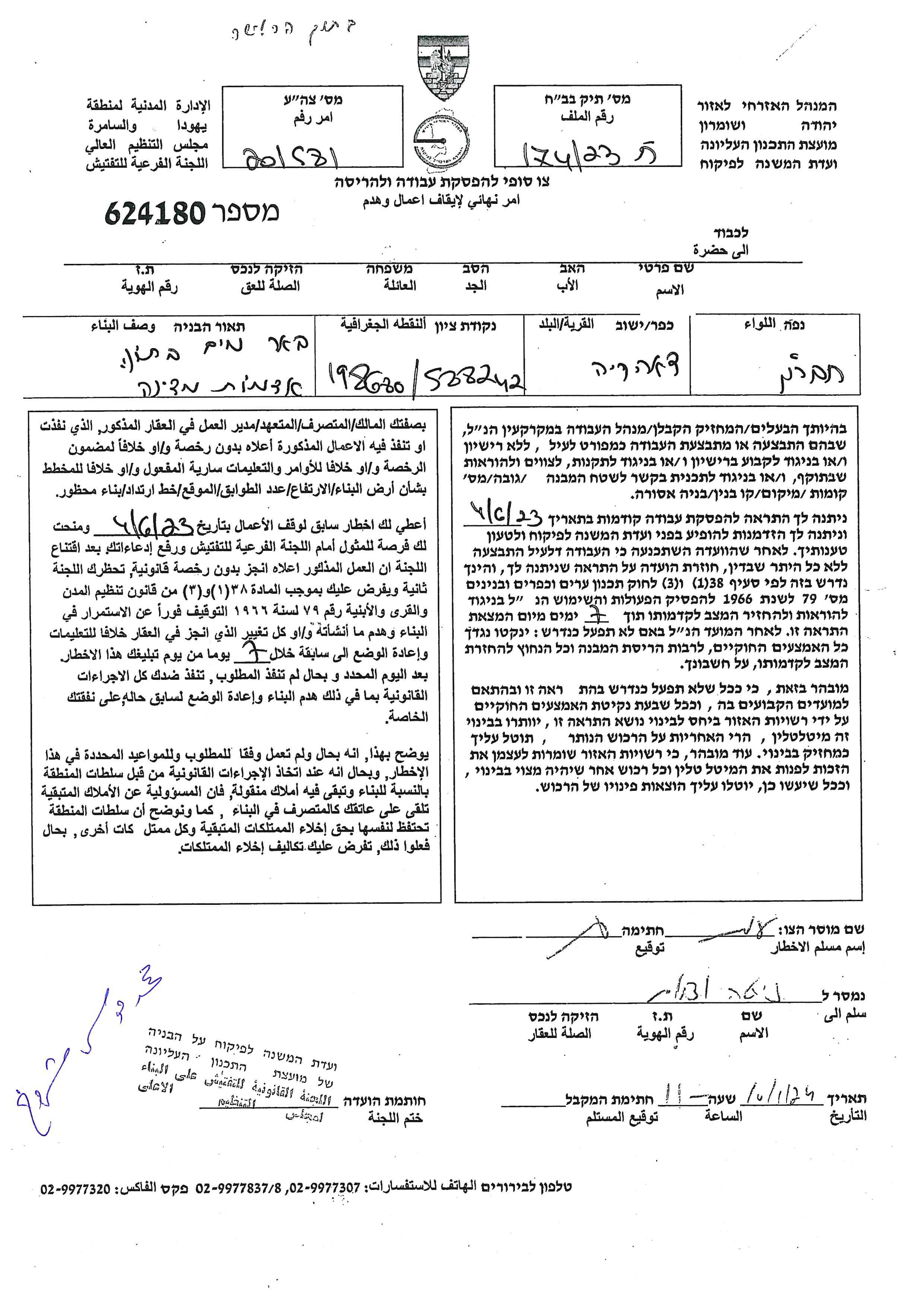2024-09-03
The Occupation Demolishes an Agricultural Water Well Belonging to the Sharoukh Family East of Al-Dhahiriya/ South of Hebron
Description:
On Tuesday, September 3, 2024, Israeli occupation authorities demolished an agricultural rainwater collection well owned by farmer Mohammed Mousa Al-Sharoukh, under the pretext of being built without a permit in the "Khallet Ibn Saleh" area, east of Al-Dhahiriya town, south of Hebron Governorate.
The affected farmer told a researcher from the LRC that the occupation authorities arrived at his land on the mentioned date with a drilling rig and a bulldozer. They demolished the well, filling it with soil and stones that they had excavated from the surrounding area and dumped inside after destroying the well's concrete door.
He pointed out that the occupation authorities destroyed the well, which had been built 15 years ago and had a capacity of about 150 cubic meters of rainwater. He used the well for agricultural purposes, as he owns a piece of land about 40 dunams in size. About three years ago, he planted approximately 500 olive seedlings and relied on the well's water to irrigate these trees.
He also noted that demolishing the well would cause significant harm to the trees planted on his land, especially given the summer season in a semi-arid, hot region that lacks water sources. Moreover, it is challenging to deliver water to the area due to settler attacks from a nearby outpost. These settlers frequently assault farmers and their properties, blocking roads leading to the area. The farmer had previously been attacked by settlers on the same plot of land that contains the well.
The occupation authorities had issued a final demolition order for the well on January 10, 2024, despite the farmer submitting a permit application and hiring a lawyer to contest the notice. However, the authorities rejected his request and proceeded with the demolition.
Demolition Order No. 624180 Targeting the Agricultural Water Well
The Demolition of Palestinian Water Wells: A Cause of Agricultural Land Dryness
The Israeli occupation relentlessly targets Palestinian water resources, creating a severe water crisis in Palestinian territories. This crisis has escalated as the occupation intensifies its efforts to deprive Palestinians of their right to access their natural resources and live in a healthy and dignified environment.
The occupation’s actions hinder Palestinians from developing the water sector. It maintains control over the seven groundwater basins spanning from the far north to the far south. Palestinians are prohibited from drilling wells, collecting rainwater, or even constructing small water reservoirs. Additionally, the occupation demolishes existing structures, confiscates, and destroys water pipelines connecting Palestinian communities lacking water access.
This systematic deprivation has rendered agricultural lands semi-arid and dry, posing a looming environmental disaster for Palestinian farmlands.
مشروع: حماية الحقوق البيئية الفلسطينية في مناطق "ج" SPERAC IV - FCDO
Disclaimer: The views and opinions expressed in this report are those of Land Research Center and do not necessarily reflect the views or positions of the project donor; the Norwegian Refugee Council.
إخلاء المسؤولية: الآراء ووجهات النظر الواردة في هذا التقرير هي آراء ووجهات نظر مركز أبحاث الأراضي ولا تعكس بالضرورة وجهات نظر أو مواقف الجهة المانحة للمشروع؛ المجلس النرويجي. للاجئين

